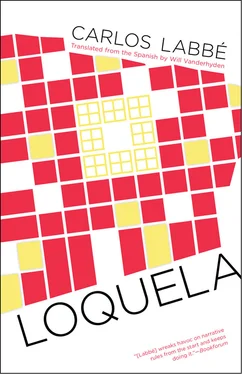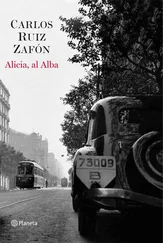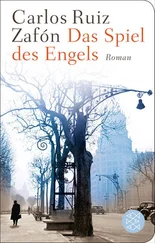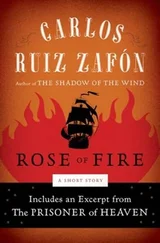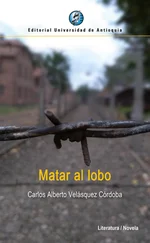A hand rose to wave goodbye to the albino girl at the entrance to the bus station and it was her own hand; no, it was the hand of the taxi driver who was touching her shoulder, asking if she was feeling okay. She didn’t trust him, she paid and ran to the entrance, fearful that the ground on which she walked would cease to exist before she could find the bus. She remembered her dear Alicia, she half turned to look for her and in that instant a girl emerged out of her own back, took two steps, dropped an empty cup in a trash can, climbed onto the first step of the bus that in eight hours would drop me off in Santiago. For a long time, I was afraid. I lay down in my bedroom, alone, wondering why I’d let Alicia leave Neutria without saying goodbye. Every now and then my grandmother poked her head in to offer me lunch, tea, cookies; she asked me if I was feeling okay, she stroked my face with one hand that, before settling on my forehead, she waved from side to side as if she were saying goodbye to me. According to my grandmother — who actually died when I was eight — I was shaking with fever, delirious, saying that you were coming to find me at my apartment, that I couldn’t understand how the city remained standing if I wasn’t observing it, if I wasn’t able to make the waves break at my feet on the beach, if from my bed here in Santiago all I see is Cerro San Cristóbal. I slept with my grandmother’s hand on my forehead — now and then I saw her move her head with the sort of swaying acquired by everything that drifts away — sweating and shouting where had He Who Is Writing the Novel gone, if he’d forgotten me because my sick body would be of no more use to him, unable to escape my nightmare: I walked for days through the city, I was unable to lift my head to see where I’d come to. Until I woke up. Soaked with sweat, I went to the bathroom and looked at myself in the mirror: out the window was the university, the port, and beyond that, the sea. I understood that if Neutria was still standing it was because you and I met each other, because I told you that dying isn’t necessary and you answered with a proposition: better that we live together. I took off my pajamas, showered, got dressed again. On the answering machine I had a message from the professor, who invited me to the opening of an art show that he’d organized in the exhibition hall at Universidad de Neutria.
The sun was setting again. The streetlamps barely cast any light, as if they were coming to understand that the city was slowly entering the night and would never return. As I went turning down the corridors on my way to the university auditorium, I heard a deep voice that unexpectedly narrated in detail, through some speakers, every step I was taking: she passes through the grayish gateway into the dark space of the central nave, passes through another archway down a new, still-darker corridor. She arrives at the central quad, turns — furious, sad, beside herself — to the left to enter the exposition hall. From a dais, dressed in meticulous mourning, smiling, the professor lifted his left hand and waved to her, leaving the microphone for a moment, no longer narrating my footsteps, because I took three glasses of wine and clutched them against the palms of my hands before hurling them against the dais, where he was now commenting to other academics about my gesture, about memory, about the social body, about collective intimacy, about private horizons. I hurled the glasses against the wall behind the fucking professor, I broke into pieces, and the red stained the whiteness of the wall at least.
The guests at the opening of the Corporalism show, the most recent work of documentary fiction by the famous professor, gathered around the sequence of photos hung in the hall. The first ones depicted girls like me and boys like He Who Is Writing the Novel in a living room, heatedly arguing about A Young Poet who never existed. In the photos that followed we made a toast with whiskey, the three of us, including the artist responsible for the show. This man is a genius, said the Undersecretary of Culture, and studied with interest the huge photo of He Who Is Writing the Novel slicing his index finger on the golden edge of an opulent edition of Madame Bovary , whose bloody pages were displayed in the Objects section. Dozens of photos documenting a student march, students who also received cash payment, whose posters proclaimed “Corporalism is fascism,” the stones thrown at the Biblioteca Nacional, the frustrated arson attempts at the houses of Eltit, Richard, and Zurita; hundreds of photos that established the chronology of the “Birth,” “Adolescence,” and “Death of an artistic movement.” Across one wall was printed the Corporalization Manifesto , at last I was able to read what you’d written in order to make me understand that a great artifice was making it so the wine glasses kept falling all around me without hurting me, so the light bulbs shattered without their brightness leaving me blind, otherwise I’d have been unable to witness the exposition of every single one of these words, of every blink of my eyes, of my name itself which had been foreseen by that professor: while He Who Is Writing the Novel and I were creating it, someone else was gathering together our pages like the corpus of an academic essay that would bear the title Loquela .
When another wine glass fell to the floor of the exhibition hall, I drew near to see if it had actually broken, and I heard the long-winded speech the professor was delivering to an art critic: with this installation I explore the emotional emptiness of individuals as the foundation of a society of consumption that conceives of itself as a healthy organism, where the artist is paradoxically the cancerous tumor and the only individual without needs; the economic order is maintained by a structure that is doubly hypocritical with respect to cultural creation, since as much as this system of exchange convinces the artist of the uselessness of his work, it demands that his face, his name, and his body be a polemic object in a scenario of psychological degradation and social marginalization where anyone can read the limitations of the market without experiencing them personally, or simply to conceive of marketing campaigns that seek the socialization of consumption. Corporalism — declared the professor in words that wanted to break against me and stain the white wall of this house from where I write you — is the dramatization of all the errors we artists commit, most of the time due to ingenuousness, alcoholism, or ambition, until we turn our own bodies into metastasis. Instead of spilling what is imposed on us across a page and giving it back in the form of book, instead of offering society that tumor, which is why they pay us to study in their laboratories, we mix ourselves into the work itself and end up presenting our bodies in pieces on silver platters so that the attendants of openings and launches can devour us. I divined what the professor wanted to add and he was quiet: the artist is a tumor that should not spread, but that must exist to focus the malignance. He believed himself to be an artist, because of that he was the most despicable being on Earth, I thought when I came to the photograph in sepia where you and I are holding each other on the beach; you were biting my ear and I was slipping my hand into your pants, we were standing and the sea was a monochrome wall of water. It had stopped moving at last! That was the photo, the picture I’d been seeking for so long across the eternity of a couple: the missing landscape that kept Neutria from leaving me, the last photo in the final room of the show.
On my shoulder I felt the weight of a hand that slid down to my waist, a warm hand that was cooling against my flesh and grabbing me. I turned: He Who Is Writing the Novel was in front of me, dressed elegantly, hair gelled and slicked back like an executive. He smiled at me with malice; I asked him if he was happy with the way his novel had ended — a huge party, fame and posterity in the media. Without blinking he said that I could stick posterity wherever it fit, that he didn’t want to talk: I had to leave with him. He tried to drag me and I put up a fight, threatening to scream. He said that the others like him, who are writing the novel of Corporalism and who were wandering around the exhibit, wouldn’t let me off the hook if they saw me again. I shuddered. My voice breaking, I asked him what he was talking about. He said that I shouldn’t pretend like I didn’t understand, that the limits of the movement were inside the body of its protagonists, that the end of Corporalism was the end of its characters. I still didn’t understand: it had all been staged by the professor and had turned out just how he’d planned. No, that wasn’t so, he responded. The implications and phases were much vaster: I would never be able to see the magnitude of all of it, the professor and his exhibit formed part of something greater. Like how the bricklayer does not imagine the dimensions of the city when he builds his first house? I asked. He looked at me in silence. I had contributed to the failure of this part of the project, he murmured. My presence and the disgusting sentimentalism of He Who Is Writing the Novel, who had been unable to bear seeing me there, holding him on the beach, assuring him that I loved him, that I loved him completely, standing, walking, alive. He Who Is Writing the Novel had at last transformed himself into The Young Poet and disappeared without leaving traces or records. Gently I pulled my arm from the hand that was clutching me. He stayed there sitting on the quad, watching me walk toward the exit; he was unable to keep himself from shouting after me, from a distance: You’re going to die.
Читать дальше
